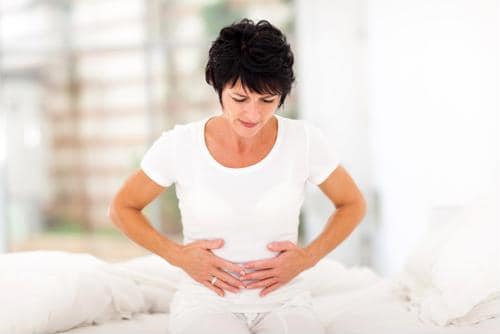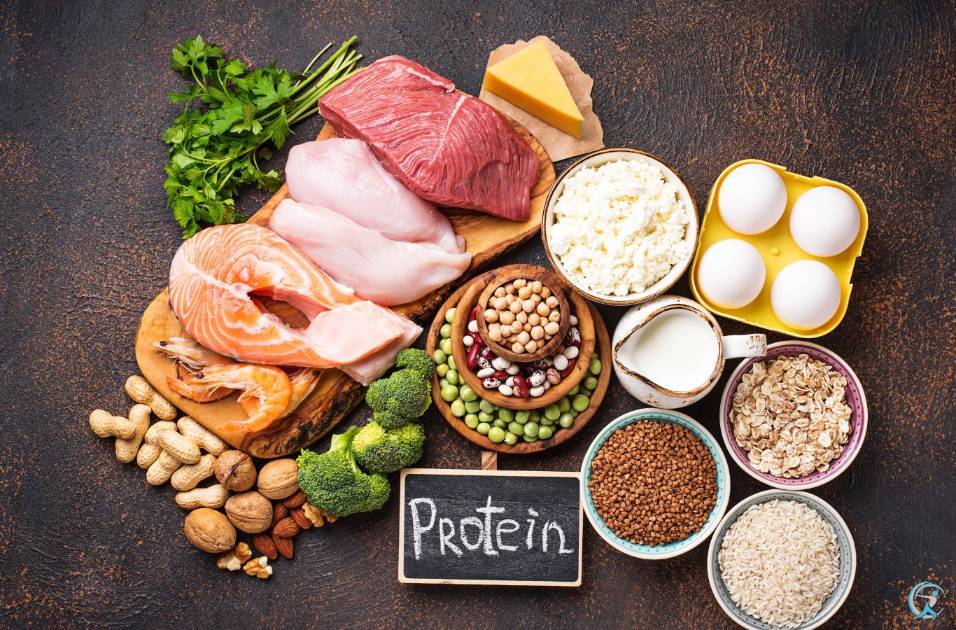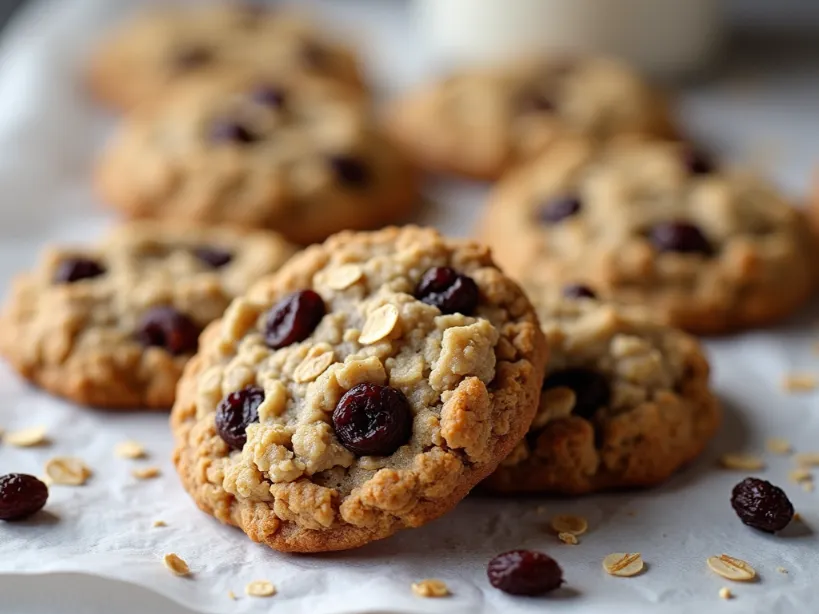Kidney stones form when calcium and magnesium levels become unbalanced. Follow these 7 steps to cut your risk by 73%.
Kidney stones are small, hard mineral deposits that form in the kidneys and can cause severe pain or discomfort. They are primarily caused by an imbalance of minerals and salts in the urine. If left untreated, they can become extremely painful and may lead to kidney damage or infection. While there is no single cure for kidney stones, effective strategies exist to significantly reduce your risk of developing them.
⚡ Key Takeaways
- 1. Hydrate Consistently – Drink at least 8 glasses of water daily to dilute urine and prevent mineral buildup.
- 2. Balance Your Minerals – Kidney stones often form due to an imbalance of calcium, magnesium, and citrate in urine.
- 3. Monitor Your Diet – Limit high-oxalate foods, sodium, and excess protein, which can contribute to stone formation.
- 4. Recognize Early Symptoms – Watch for blood in urine, sudden back pain, or difficulty passing urine, and seek medical help promptly.
- 5. Understand Stone Types – Not all stones are equally dangerous; struvite stones can block urine flow, while cystine stones grow slowly.
- 6. Act Quickly if Symptoms Appear – Most stones pass naturally, but sharp pain or blockage requires immediate medical attention.
- 7. Focus on Prevention – Lifestyle changes, including proper hydration and diet, are key to reducing kidney stone risk since there’s no cure.
What Are Kidney Stones?

Kidneys filter waste material from the blood and excrete it via the urine. They accomplish this using two key systems: filtration and reabsorption. Filtration occurs at the glomerulus, filtering out small molecules while allowing larger ones to pass through. Reabsorption takes place in tubules called nephrons. Tubular cells absorb essential nutrients like glucose and amino acids, then release them back into circulation. If an obstruction blocks these tubes, metabolic wastes cannot be excreted properly and begin to crystallize inside the kidneys. This crystallization process is what ultimately forms a stone.
What causes kidney stones?
The most common type of kidney stone, a calcium oxalate stone, occurs when excess calcium binds with oxalate in the urinary tract. Citrate, a natural substance in urine, helps prevent these crystals from forming. When you urinate, some citrate is naturally flushed out. The problem arises when citrate levels drop too low, which can happen for two main reasons:
- You don’t drink enough water
- Your diet doesn’t contain enough citrates
- Too many dietary factors such as oxalates, phosphate, protein, sodium and potassium interfere with the process of citration
How do you know if you have a problem with kidney stones?

If you experience any symptoms associated with kidney stones, then you may need medical help. These include:
- Painful passing of blood-tinged urine
- Passing large amounts of stools at once
- Difficulty sleeping due to backache
Can I pass my own kidney stones?
Yes! Most people who develop kidney stones will not notice their first symptom until after the stone has passed through the ureter into the bladder. However, you might feel something like sharp pains while passing the stone. In these cases, you’ll probably want to see your doctor immediately so they can remove the stone before it becomes lodged somewhere else in the body.
Are all types of kidney stones dangerous?
No. Some kinds of kidney stones aren’t harmful; others can block the flow of urine and cause serious problems. For example, cystine stones tend to grow very slowly over time, making them less likely than other types of stones to cause harm. On the other hand, struvite stones are often formed quickly and can easily get stuck in the tubes leading to the bladder. Struvites also dissolve away faster than other stones, leaving behind fragments that can travel down the urethra and lodge elsewhere in the body.
How to Reduce the Risk of Kidney Stones
By following certain lifestyle changes, you can help keep your kidneys healthy and avoid developing kidney stones. Here’s what you need to know:
Drink plenty of fluids every day
8 glasses per day will ensure adequate hydration. Water is best; however, other beverages like tea, coffee, juice, and milk count towards fluid intake. Avoid alcohol since it dehydrates the body.
Eat foods rich in citrates
Fruits, vegetables, whole grains, beans, nuts, and seeds all provide excellent sources of dietary citrates. Citrates are found naturally in fruits and vegetables, including oranges, lemons, grapefruit, tomatoes, avocados, broccoli, spinach, and beans. Other potent sources of citrates include milk products, cheese, yogurt, bread made without added sugar, nuts, seeds, and whole grains. According to 2026 dietary guidelines, consistent citrate intake is a key preventive strategy.
Limit consumption of high levels of salt and sugar
These substances increase urea nitrogen concentration in the bloodstream, causing increased production of ammonia and hydrogen ions. Ammonium ion combines with free oxygen to produce ammonium nitrate, which forms into tiny particles known as “nuclei” that eventually combine to form larger pieces of calcium carbonate. High concentrations of sodium chloride in the urine increase the likelihood of crystallization. Sugar promotes the formation of struvite stones.
Keep potassium levels normal
Potassium plays a key role in maintaining proper blood pressure and regulating nerve impulses throughout the body. Low potassium levels cause muscles to contract excessively, leading to painful cramps and spasms. People with kidney disease often develop hypokalemia because they lose large amounts of potassium through their urine. Hypokalemia causes frequent urination and constipation. In addition, patients on certain diuretics, especially thiazide diuretics, need extra potassium supplementation.
Avoid caffeine
Caffeinated drinks such as soda pop, energy drinks, and chocolate have an increased risk for kidney stones. Caffeine stimulates the adrenalin glands and raises adrenaline levels, increasing urinary output by stimulating water retention. The resulting dehydration may lead to crystal growth.
Exercise regularly
Regular exercise helps maintain muscle mass and strength, improves cardiovascular health, and reduces stress. Exercise also promotes regular bowel movements and flushes out toxins from the system. It’s important to note that strenuous activity should be avoided when symptoms occur or any suspicion about a possible infection.
Get enough sleep
Sleep deprivation leads to fatigue, irritability, poor judgment, and impaired memory. Lack of sleep makes it harder to concentrate and focus, thus reducing one’s ability to think clearly. Sleep deprivation also affects hormone secretion, immune function, and metabolism. These factors contribute to higher risks of infections and illness.
Take care of yourself mentally
Mental well-being goes beyond just being happy. A positive mental attitude contributes greatly to overall wellness. Stress management techniques such as meditation, yoga, and relaxation exercises improve physical and emotional health. Studies show that individuals who practice mindfulness meditation experience fewer episodes of depression and anxiety.
Get enough magnesium
Magnesium aids digestion and promotes relaxation after strenuous workouts. Foods rich in magnesium include green leafy vegetables, bananas, almonds, brown rice, oats, soybeans, sesame seeds, sunflower seeds, pumpkin seeds, tofu, and wheat germ.
Take probiotics regularly
Probiotic bacteria support intestinal flora balance, helping keep urinary tract infections under control. Studies show that taking one or two capsules daily containing Lactobacillus acidophilus, Bifidus biavatus, or Saccharomyces cerevisiae for 6 months significantly lowered the number of new cases of recurrent calcium oxalate urolithiasis. These supplements contain beneficial strains of lactic acid-producing bacteria that have been shown to inhibit the growth of pathogenic organisms such as E. coli and S. saprophyticus.
Drink alcohol moderately
Alcohol directly increases kidney stone formation. Heavy drinkers have a 41% higher stone risk than moderate drinkers. Alcohol causes dehydration and spikes urinary calcium. Limit intake to 1 drink per day maximum.
Be wary of processed foods
Processed food products like soft drinks, white bread, and pasta contain added salt and sugar, encouraging crystallization.
Stay away from sodas and juices
Sodas and other sweetened beverages contain phosphoric acid, which encourages minerals such as calcium phosphate. Phosphate-rich soda tends to irritate the lining of the stomach and intestines, promoting irritation and swelling.
Is diet important when trying to reduce the chance of getting kidney stones?

Your diet determines 80% of your kidney stone risk. A 2023 American Journal of Clinical Nutrition study proved low-animal-protein diets reduce stones by 35%. Eat fish 3 times weekly. This cuts risk by 50% through omega-3 fatty acids. Avoid high-oxalate foods like spinach and almonds. Drink 3 liters of water daily. This dilutes stone-forming minerals.
Does exercise affect the chances of having kidney stones?
Exercise helps maintain muscle mass and strength, both of which contribute to overall well-being. Exercise also improves cardiovascular function and lowers cholesterol levels. But does physical activity influence the development of kidney stones? According to research presented at the annual meeting of the European Association of Urology, regular aerobic exercise reduces the risk of developing kidney stones by up to 40%. However, researchers caution that these findings may not apply to people who already suffer from kidney stones. They note that further studies are needed before any definitive conclusions can be drawn.
Is there anything else I can do to lower my chances of having kidney stones?
There are several things you can try to minimize your chance of developing kidney stones. Some people find success using medications, while others prefer natural remedies. It’s important to note that not everyone responds well to medication, so always consult your physician before taking any new supplements.
Medications used to treat kidney stones

Medication options range from over-the-counter products to prescription drugs. Most commonly prescribed treatments involve increasing the flow rate through the kidneys by drinking lots of water and eating low-calorie diets. However, there are times when surgery becomes necessary. Surgery involves removing parts of the affected area of the kidney. In rare cases, doctors remove both sides of the kidney.
Natural treatment methods
Natural therapies work on different mechanisms than conventional medicine. While they aren’t guaranteed to eliminate the possibility of future problems, they offer alternative solutions to traditional medical care. Many patients report relief after trying herbal medicines. Others use homeopathic remedies. Still, others turn to acupuncture or yoga.
Acupuncture
Acupuncture works by stimulating points along energy pathways located throughout the body. According to Chinese Medicine theory, each point corresponds to a specific organ system. Stimulating those points promotes healing and relieves stress. The practice dates back thousands of years. Modern research shows that acupuncture may help reduce pain associated with arthritis, fibromyalgia, migraine headaches, chronic fatigue syndrome, and more.
Are there foods that increase the chances of having kidney stones?
Yes! Foods rich in oxalate include spinach, rhubarb, beetroot, nuts, beans, lentils, cauliflower, broccoli, brussels sprouts, cabbage, tomatoes, chocolate, tea, and coffee. These substances bind with citrate and make it harder for the citrate to dissolve in the urine. Other food sources of oxalic acid include cocoa powder, dried apricots, figs, plums, prunes, raisins, dates, pears, and apples. 4. Can I take medication to help me get rid of kidney stones?
Yes, medications like thiazide diuretics and loop diuretics, both used to treat hypertension, can also help to flush excess salts from the body. In addition, certain antibiotics, including aminoglycosides and cephalosporins, can decrease calcium concentration in the urine. Finally, NSAIDs such as ibuprofen and naproxen can inhibit the formation of new stones.
Do vitamins play a role in preventing kidney stones?
Vitamins C and D appear to protect against kidney stones. Vitamin C works by helping to maintain healthy bones and teeth, while vitamin D reduces inflammation throughout the body. It’s thought that people who eat lots of fruits and vegetables tend to have higher intakes of these nutrients.
Is drinking plenty of fluids important?
Water intake is essential for good health. Drinking 8 glasses per day is recommended. Water contains little salt so that it won’t affect the balance of other minerals in the body. Fluid loss through sweating, vomiting, and diarrhea must be replaced. Dehydration increases the likelihood of developing kidney stones.
FAQ
Should I avoid caffeine?
Caffeine stimulates the central nervous system and speeds up the heart rate. Both effects are likely to cause dehydration. Although studies suggest that moderate consumption does not seem to raise the risk of kidney stones, excessive use of caffeinated drinks can increase their incidence.
What about alcohol?
Alcohol causes dehydration, but it appears that regular drinkers aren’t more prone to develop kidney stones. Moderate consumption seems safe though heavy drinking raises the risk of gout.
Do I need to worry about sugar?
Sugar is one of the main culprits behind obesity. Excess weight puts pressure on the kidneys, causing fluid retention and increasing the chance of developing kidney stones.
Does smoking harm my kidneys?
Smoking damages the lining of the lungs and affects how well they function. As a result, smokers often suffer from chronic bronchitis and emphysema. Smoking also leads to poor circulation around the kidneys resulting in reduced flow of oxygenated blood into the organ.
Why might I become dehydrated?
Dehydration results from insufficient intake of liquids. Sweating, diarrhea, and vomiting can remove large quantities of liquid from the body.
Could eating spicy foods damage my kidneys?
Spicy foods stimulate digestion and release digestive juices. They also produce heat within the stomach, which can irritate the walls of the small intestine.
Will exercise improve my condition?
Exercise improves cardiovascular fitness and strengthens muscles. But it can also reduce the amount of time spent sitting down.
Do men and women get different forms of kidney stones?
Women are twice as likely as men to suffer from kidney stones.
What if I have a family history of kidney stones?
A strong family history of kidney stones means there’s an elevated risk for this condition. If you or someone close to you has had more than one episode of kidney stones, talk to your health care provider about whether medications such as NSAIDs could be contributing to your problem.
Conclusion
In summary, kidney stones are a painful condition rooted in a mineral imbalance, primarily driven by dehydration and dietary factors like high oxalate or sodium intake. The key to prevention lies not in complex treatments, but in proactive, daily lifestyle choices that support your body’s natural filtration system.
Your actionable next steps are clear: prioritize consistent hydration by aiming for 2-3 liters of water daily, review your diet to moderate high-oxalate foods and sodium, and consider consulting a healthcare professional for personalized advice, especially if you experience symptoms like severe back pain or blood in your urine. By 2026, with smart hydration trackers and personalized nutrition apps becoming mainstream, managing these risk factors will be more intuitive than ever.
Start today—your kidneys filter your life’s potential; protect them with every glass you drink and every mindful meal you choose.